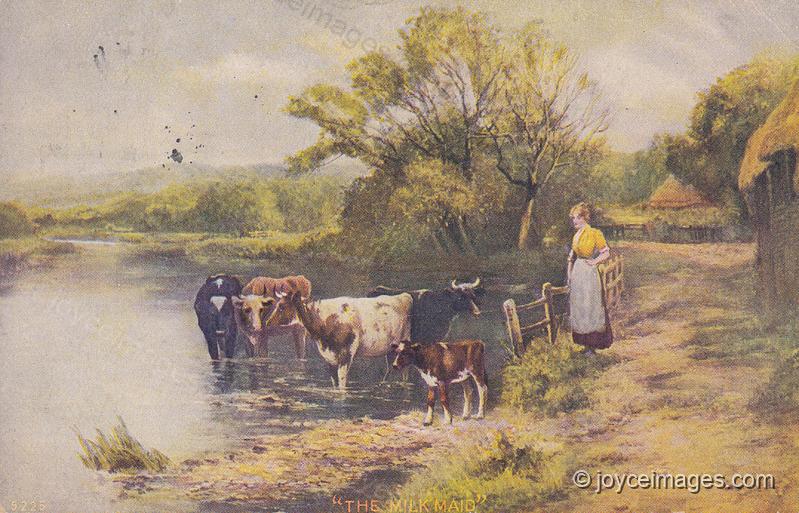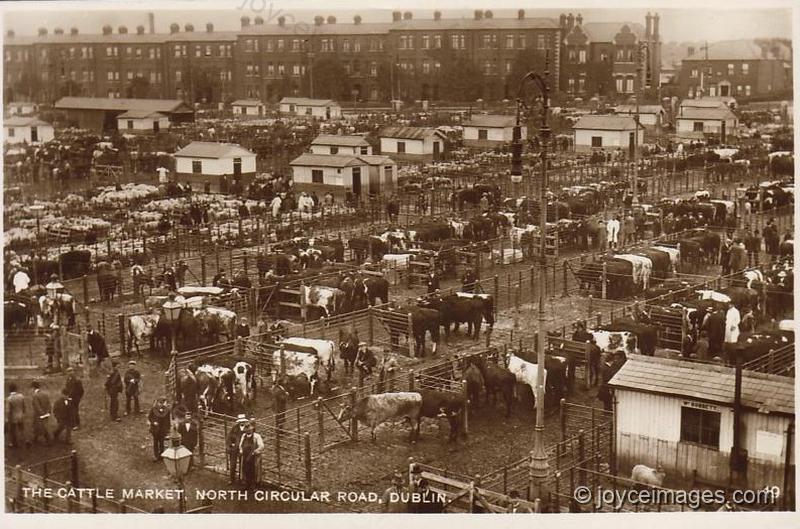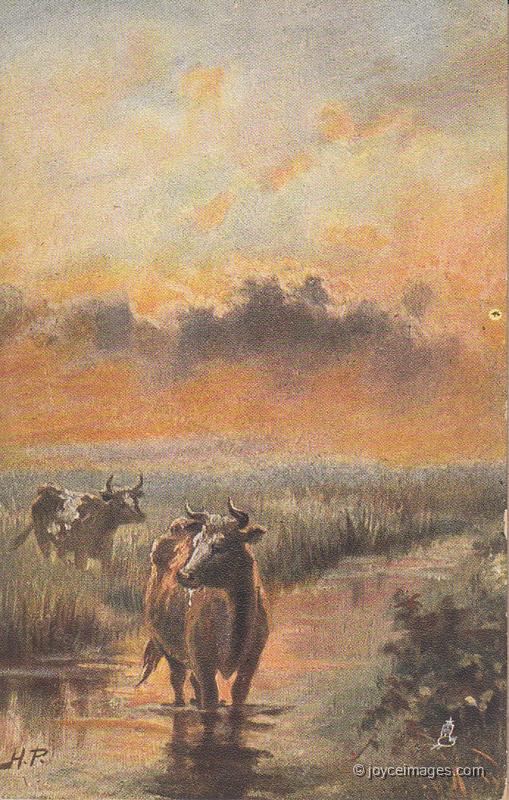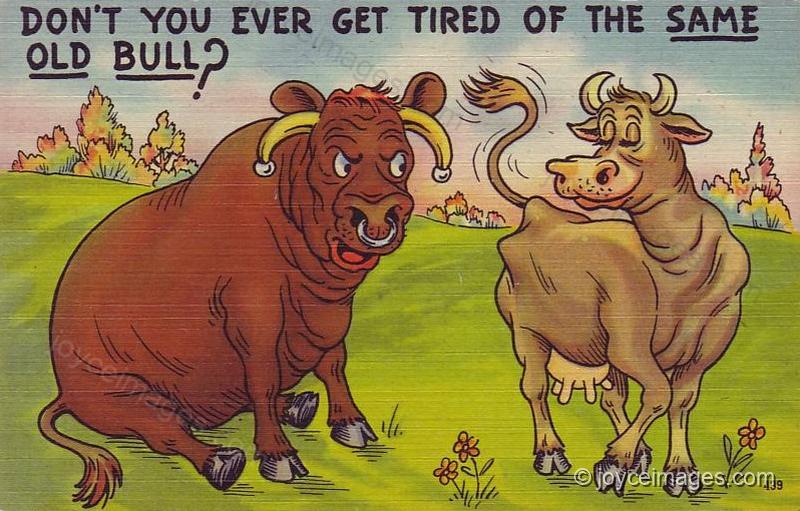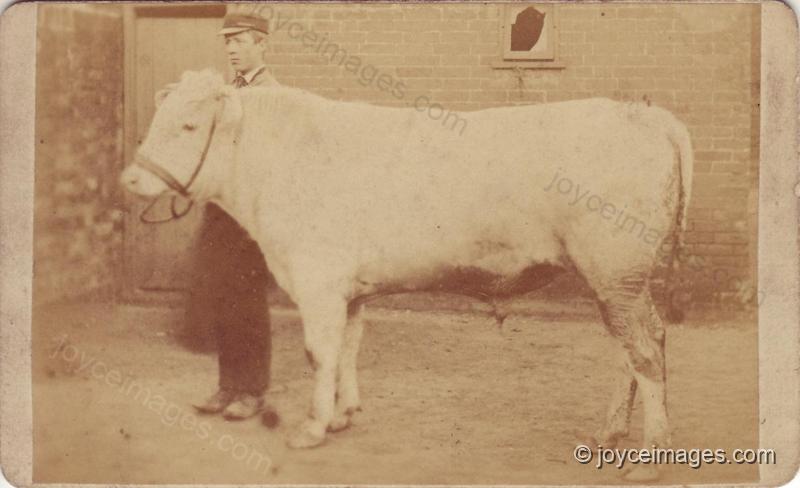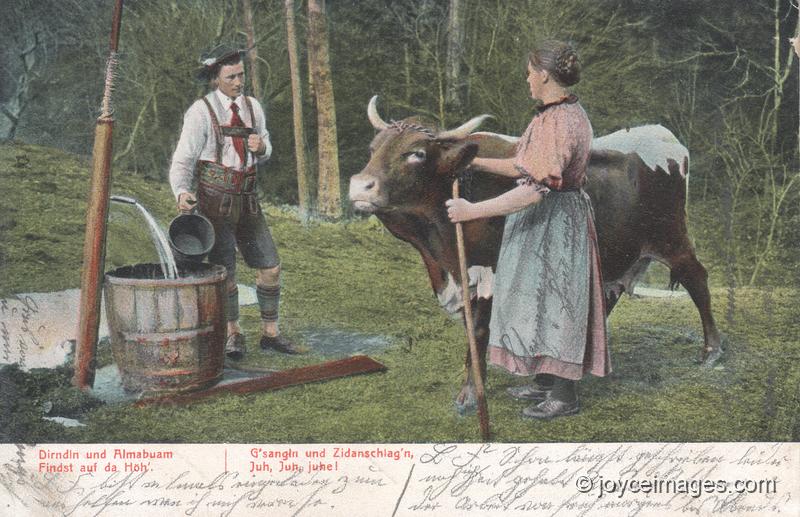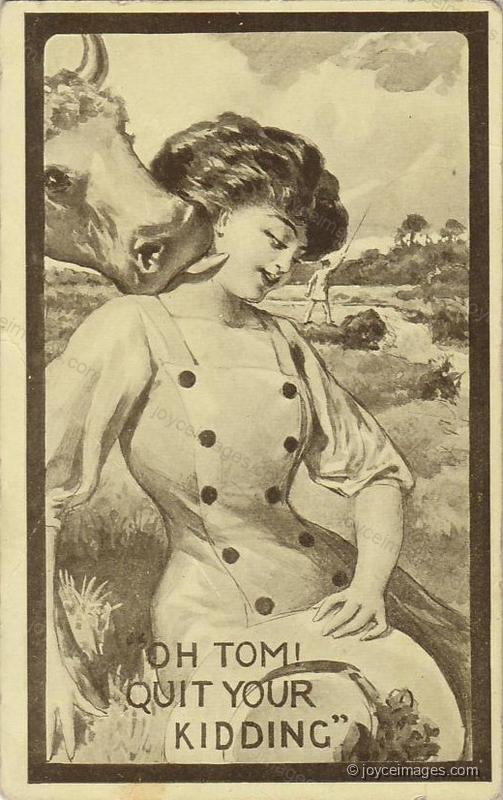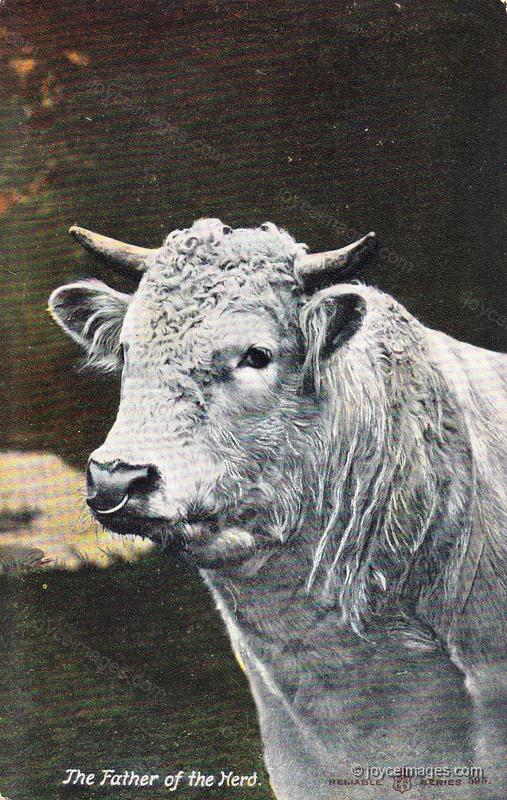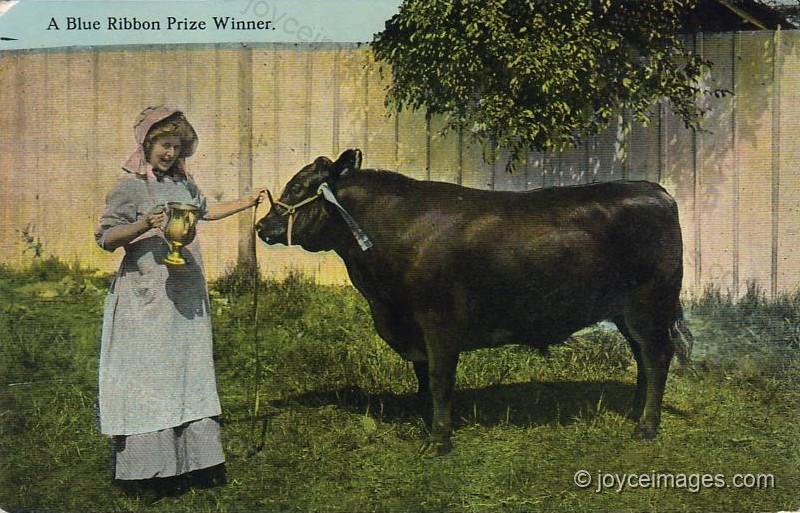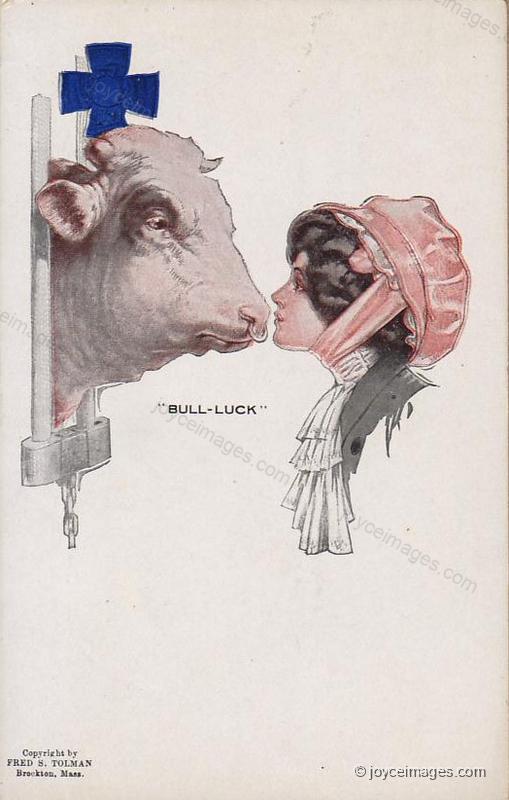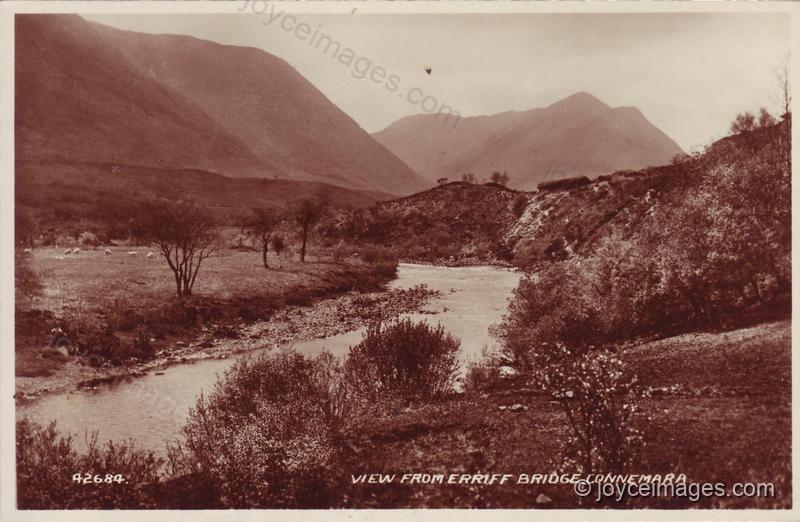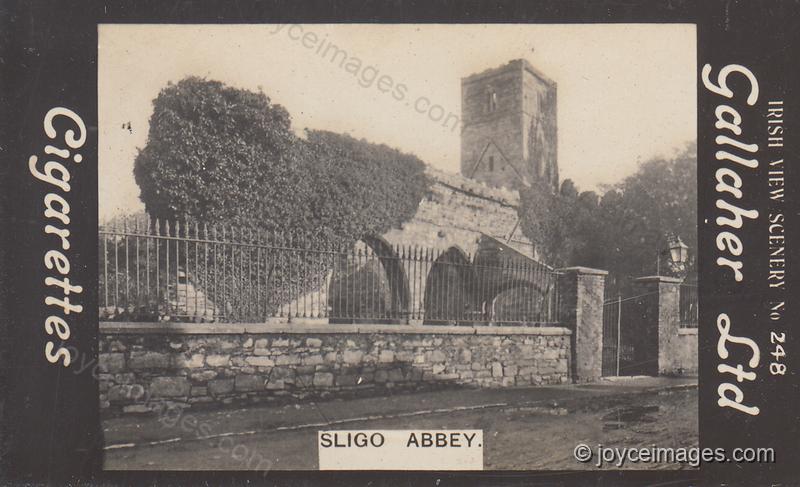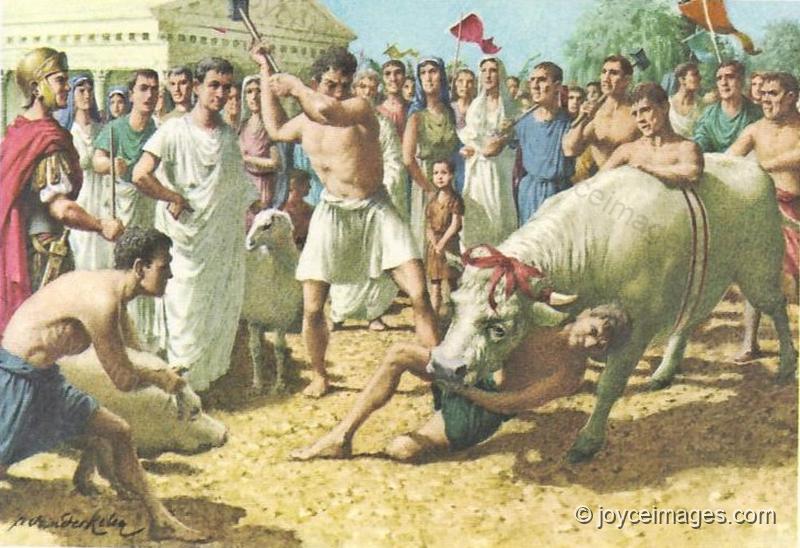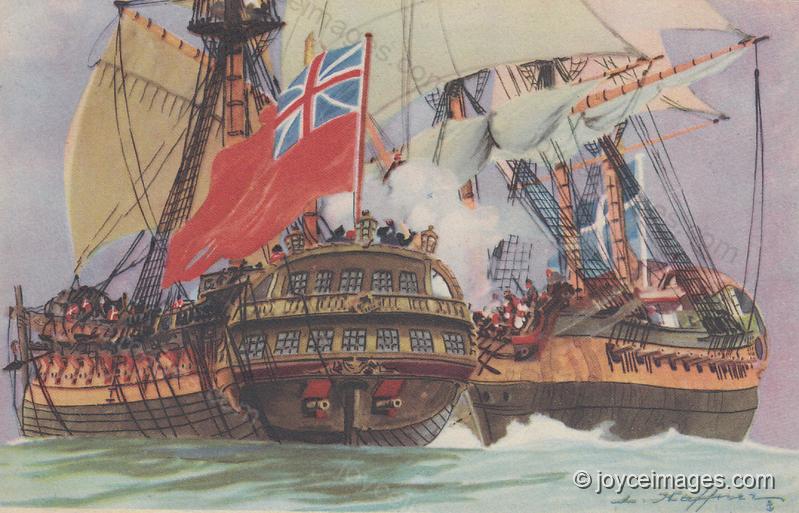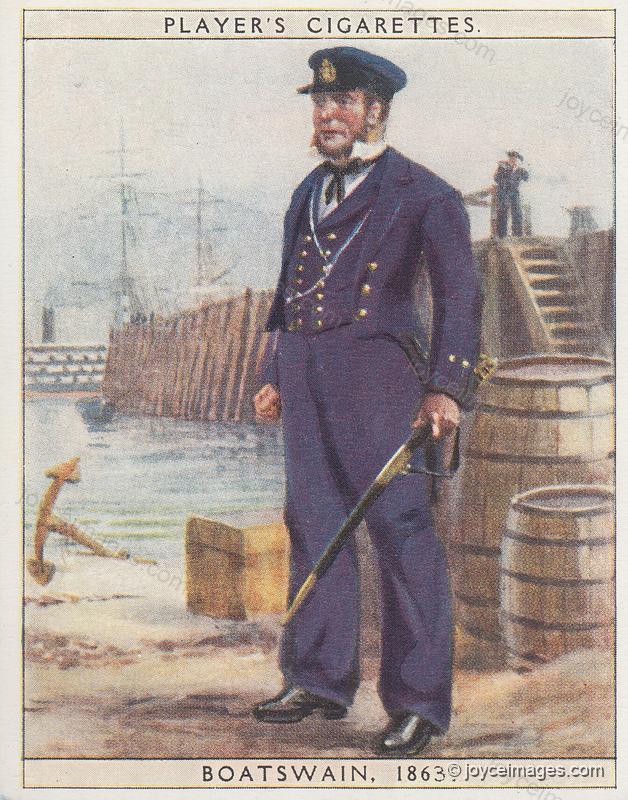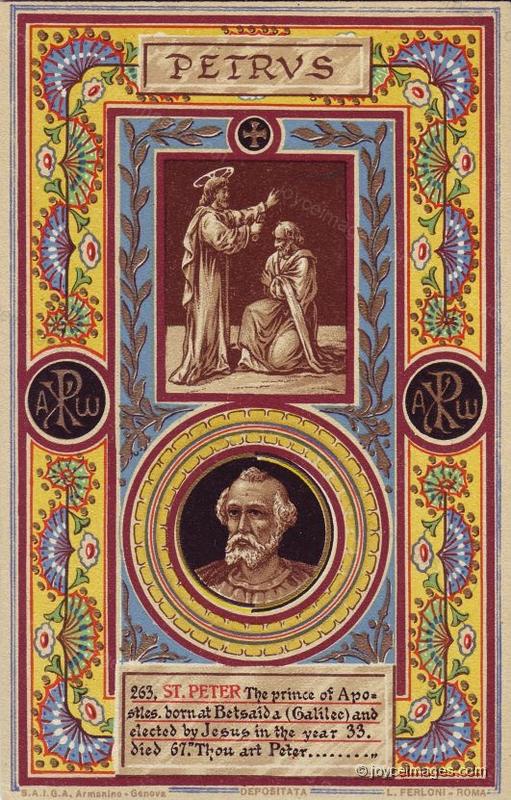"What, says Mr Leopold with his hands across, that was earnest to know the drift of it, will they slaughter all? I protest I saw them but this day morning going to the Liverpool boats, says he. I can scarce believe 'tis so bad, says he." (U14.565)
"And he had experience of the like brood beasts and of springers, greasy hoggets and wether wool, having been some years before actuary for Mr Joseph Cuffe, a worthy salesmaster that drove his trade for live stock and meadow auctions hard by Mr Gavin Low's yard in Prussia street. I question with you there, says he. More like 'tis the hoose or the timber tongue." (U14.568)
"Mr Stephen, a little moved but very handsomely told him no such matter and that he had dispatches from the emperor's chief tailtickler thanking him for the hospitality, that was sending over Doctor Rinderpest, the bestquoted cowcatcher in all Muscovy, with a bolus or two of physic to take the bull by the horns. Come, come, says Mr Vincent, plain dealing. He'll find himself on the horns of a dilemma if he meddles with a bull that's Irish, says he. Irish by name and irish by nature, says Mr Stephen, and he sent the ale purling about, an Irish bull in an English chinashop." (U14.573)
"I conceive you, says Mr Dixon. It is that same bull that was sent to our island by farmer Nicholas, the bravest cattlebreeder of them all, with an emerald ring in his nose." (U14.581)
"True for you, says Mr Vincent cross the table, and a bullseye into the bargain, says he, and a plumper and a portlier bull, says he, never shit on shamrock." (U14.584)
"He had horns galore, a coat of cloth of gold and a sweet smoky breath coming out of his nostrils so that the women of our island, leaving doughballs and rollingpins, followed after him hanging his bulliness in daisychains. What for that, says Mr Dixon, but before he came over farmer Nicholas that was a eunuch had him properly gelded by a college of doctors who were no better off than himself. So be off now, says he, and do all my cousin german the lord Harry tells you and take a farmer's blessing, and with that he slapped his posteriors very soundly." (U14.586)
"But the slap and the blessing stood him friend, says Mr Vincent, for to make up he taught him a trick worth two of the other so that maid, wife, abbess and widow to this day affirm that they would rather any time of the month whisper in his ear in the dark of a cowhouse or get a lick on the nape from his long holy tongue than lie with the finest strapping young ravisher in the four fields of all Ireland. Another then put in his word: And they dressed him, says he, in a point shift and petticoat with a tippet and girdle and ruffles on his wrists and clipped his forelock and rubbed him all over with spermacetic oil and built stables for him at every turn of the road with a gold manger in each full of the best hay in the market so that he could doss and dung to his heart's content." (U14.593)
"By this time the father of the faithful (for so they called him) was grown so heavy that he could scarce walk to pasture." (U14.604)
"To remedy which our cozening dames and damsels brought him his fodder in their apronlaps and as soon as his belly was full he would rear up on his hind quarters to show their ladyships a mystery and roar and bellow out of him in bull's language and they all after him." (U14.605)
"Ay, says another, and so pampered was he that he would suffer nought to grow in all the land but green grass for himself (for that was the only colour to his mind) and there was a board put up on a hillock in the middle of the island with a printed notice, saying: By the Lord Harry, Green is the grass that grows on the ground. And, says Mr Dixon, if ever he got scent of a cattleraider in Roscommon" (U14.609)
"or a husbandman in Sligo that was sowing as much as a handful of mustard or a bag of rapeseed out he'd run amok over half the countryside rooting up with his horns whatever was planted and all by lord Harry's orders." (U14.615)
"he found sure enough that he was a lefthanded descendant of the famous champion bull of the Romans, Bos Bovum, which is good bog Latin for boss of the show. After that, says Mr Vincent, the lord Harry put his head into a cow's drinkingtrough in the presence of all his courtiers and pulling it out again told them all his new name. Then, with the water running off him, he got into an old smock and skirt that had belonged to his grandmother and bought a grammar of the bulls' language to study but he could never learn a word of it except the first personal pronoun which he copied out big and got off by heart and if ever he went out for a walk he filled his pockets with chalk to write it up on what took his fancy, the side of a rock or a teahouse table or a bale of cotton or a corkfloat. In short, he and the bull of Ireland were soon as fast friends as an arse and a shirt." (U14.627)
"They were, says Mr Stephen, and the end was that the men of the island seeing no help was toward, as the ungrate women were all of one mind, made a wherry raft, loaded themselves and their bundles of chattels on shipboard, set all masts erect, manned the yards, sprang their luff, heaved to, spread three sheets in the wind, put her head between wind and water, weighed anchor, ported her helm, ran up the jolly Roger, gave three times three, let the bullgine run, pushed off in their bumboat and put to sea to recover the main of America." (U14.639)
"Which was the occasion, says Mr Vincent, of the composing by a boatswain of that rollicking chanty:" (U14.646)
